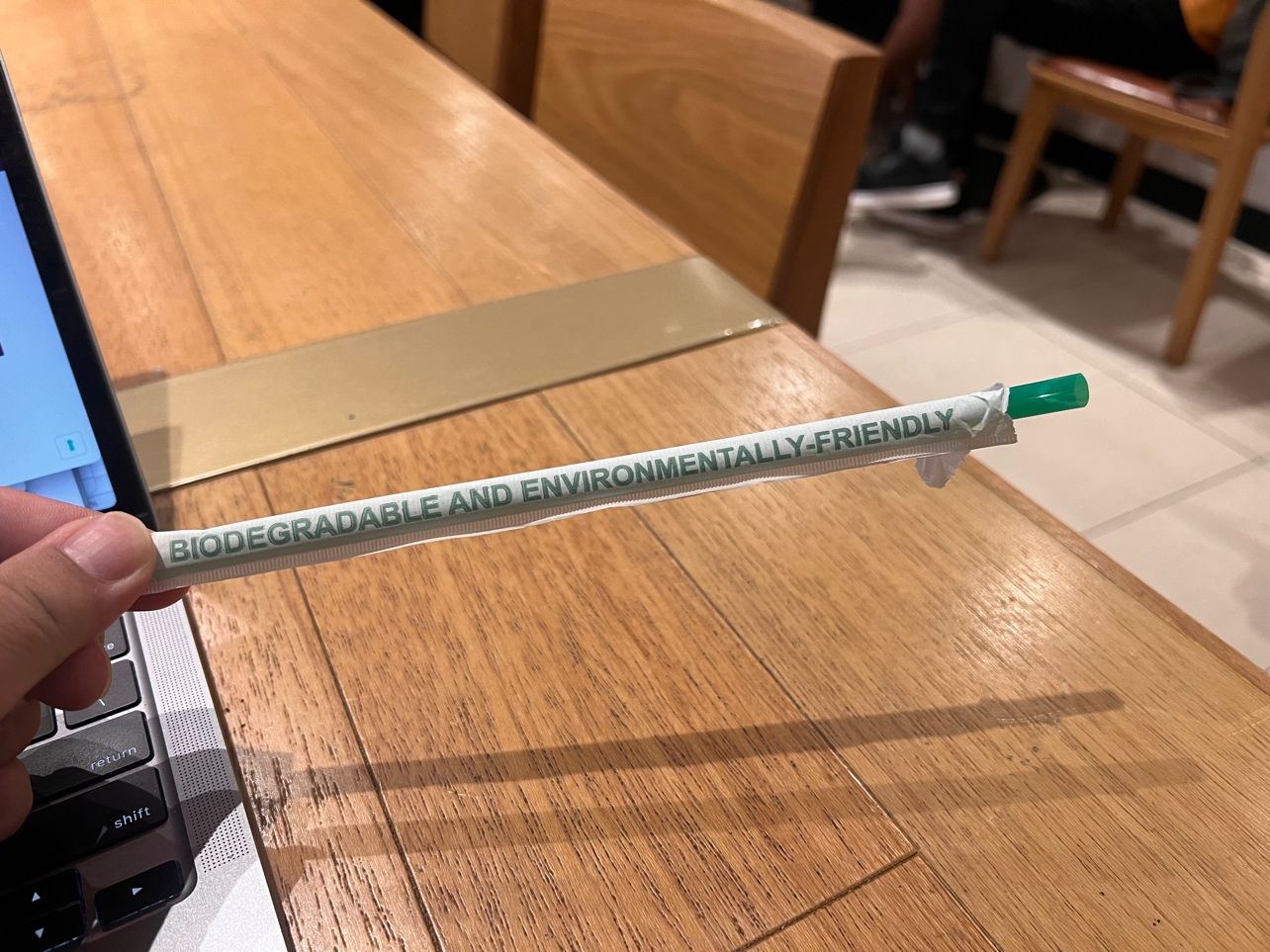Green or greenwashing? How to spot sketchy sustainability claims
Start 2025 right by being discerning before making a purchase
By Mat Richter
It’s hard to look past misleading environmental claims, even for educated consumers, as marketers in many industries work tirelessly to perfume sustainability. From unverified product claims to empty corporate climate pledges, greenwashing has taken many subtle forms that urge buyers to stay vigilant.
Major companies across the world are still critically lagging behind the 1.5 degrees Celsius goal. Their net-zero targets are "either ambiguous or only commit to limited emission reductions," said research organization New Climate Institute.
Greenwashing is a term describing false, misleading, or exaggerated environmental claims in a company’s records. Some examples are a cosmetic brand’s plastic-packaged refill packs, a fast-food chain’s non-recyclable paper straws marketed as green, and a coffee giant’s recycling bins sharing one trash bag.
Here are some more greenwashing signs to avoid this 2025 and beyond.
No proof? Don’t buy
If you see any nature logo on a product, or a statement that reads “I’m recyclable!” but lacks any credible certification to back the claim, there’s a high chance it’s misleading.
Certifications and eco-labels vetted by experts, such as the Green Choice Philippines Seal, come in acronyms or names with corresponding logos rather than a sketchy recycling symbol. So, if green descriptions are vague or full of buzzwords, it’s wiser to not buy.
“Do not hesitate to ask questions or read about what you’re buying, and always check the product labels and claims,” said DTI Consumer Protection Group Undersecretary Atty. Ruth Castelo. “Consumers should exercise their right to information and be protected against fraudulent, dishonest, or misleading labeling. They have the right to be given the facts and information needed to make an informed choice.”
Check if misleading
Clothing brands, for example, often assert their products are eco-friendly or recycled, when only a small portion of the product is. In fact, 60 percent of green claims by fashion giants are misleading, a study by the Changing Markets Foundation, a nonprofit organization exposing irresponsible corporate practices, found.

Meanwhile, plastics “having less plastics” still means most of them are non-recyclable and will take ages to decompose. This can be misleading. Another instance is plastic-packaged products banded with paper that says “I’m biodegradable!” Well, the paper is, the packaging is not.
As environmental laws lack teeth, with some still underway, businesses are yet to be bound by stronger regulations that can deter greenwashing.
“We should strengthen the capability of the government to monitor and regulate companies by ensuring there are enough resources for the implementation of laws and guidelines. Most often, we already have the policies, legal provisions, and instruments, but we have poor implementation," said Dr. Marie Obusan, an associate professor at UP Diliman holding a doctorate in environmental science.
Greenrinsing
Greenrinsing happens when businesses regularly changes or resets ESG targets to avoid accountability. A company can pledge to achieve net-zero emissions by 2040 but reset the target to 2050 after some years to buy more time and steer clear of liability.
“Measurements without the right context are also simply a set of data without any reference points. Reporting measurements honestly, transparently, and publicly holds companies accountable to the goals that they have set themselves,” said Lin Kuek, sustainability lead at Vero ASEAN.

To avoid greenwashing, sustainability advocate Antonio Vizcaya Abdo recommends aligning sustainability reporting with recognized frameworks “to ensure data is credible and transparent.”
“Clear product marketing and data-driven claims are equally essential, ensuring all messaging accurately reflects the organization’s sustainability efforts. This minimizes the risk of misinterpretation and builds trust with stakeholders,” he said.
Abdo also urges companies to be clear in their environmental communication to avoid potentially deceiving their consumers.
“Accurate articulation of sustainability targets and ambitions is critical. Clear, actionable goals ensure that sustainability commitments are tangible and align with broader strategies. Businesses that wish to maintain credibility must ensure their sustainability efforts are backed by transparency, measurable actions, and clear communication,” he added.
As climate change looms large, greenwashing challenges consumers to be more skeptical of the brands they support. It's easy to claim to be green, but walking the talk is where industries fumble. So this year, choose credible certifications over claims, and if you feel doubtful about a product, skip it right away.